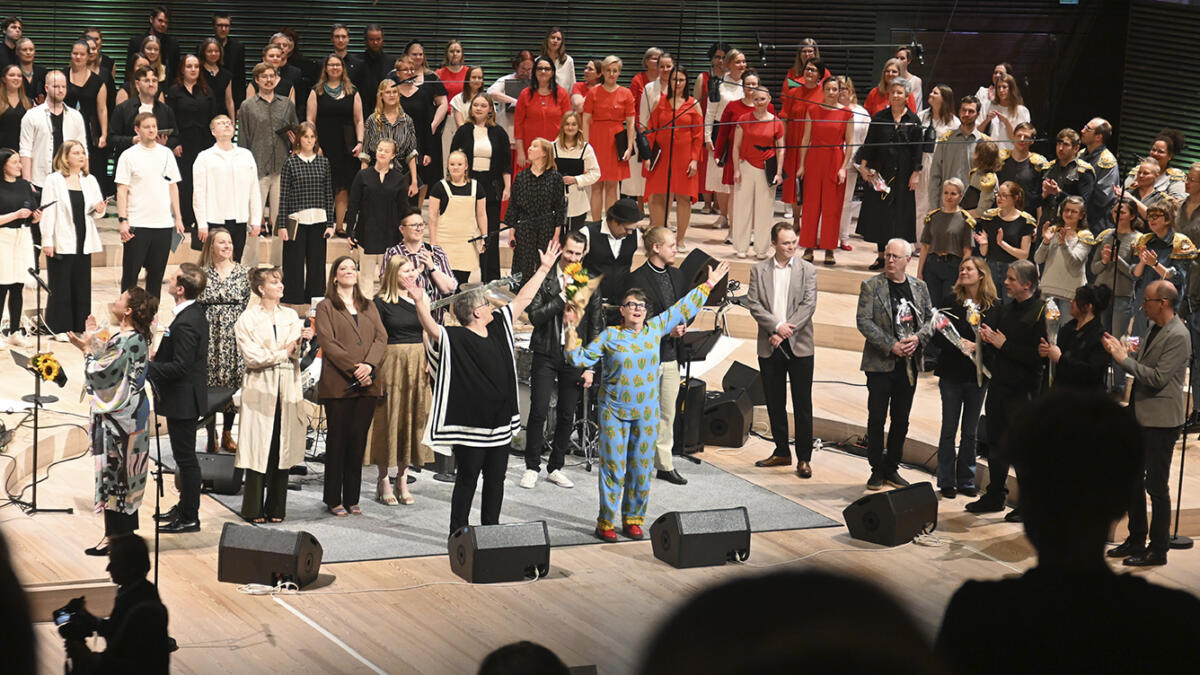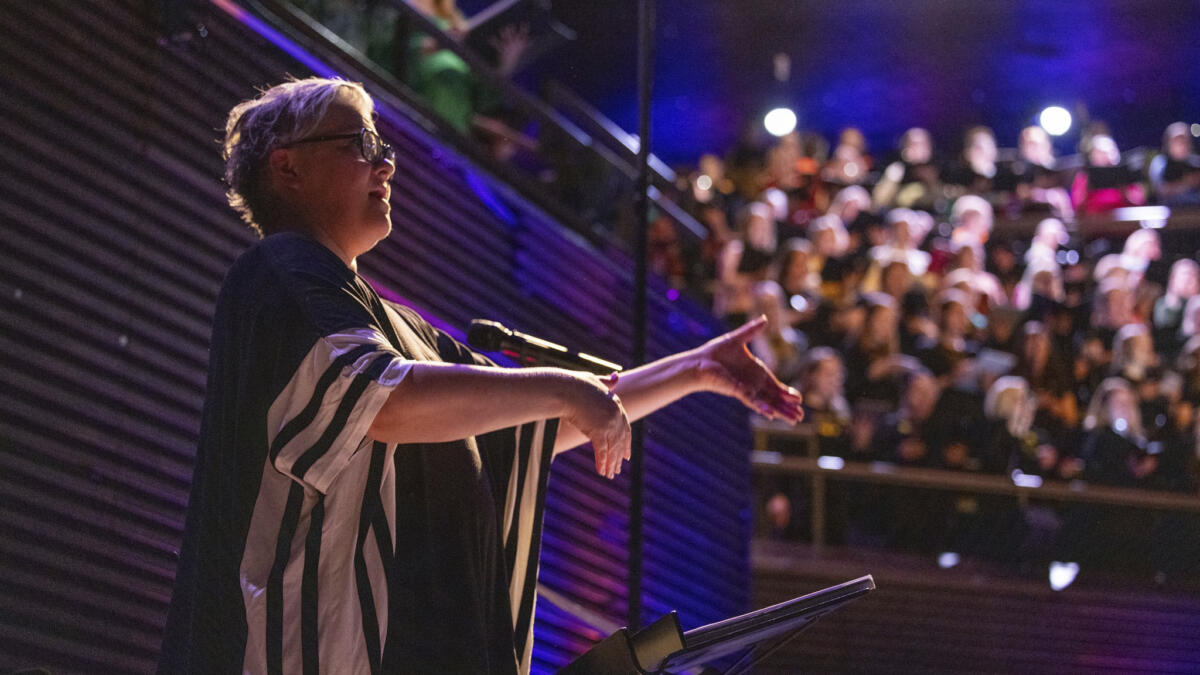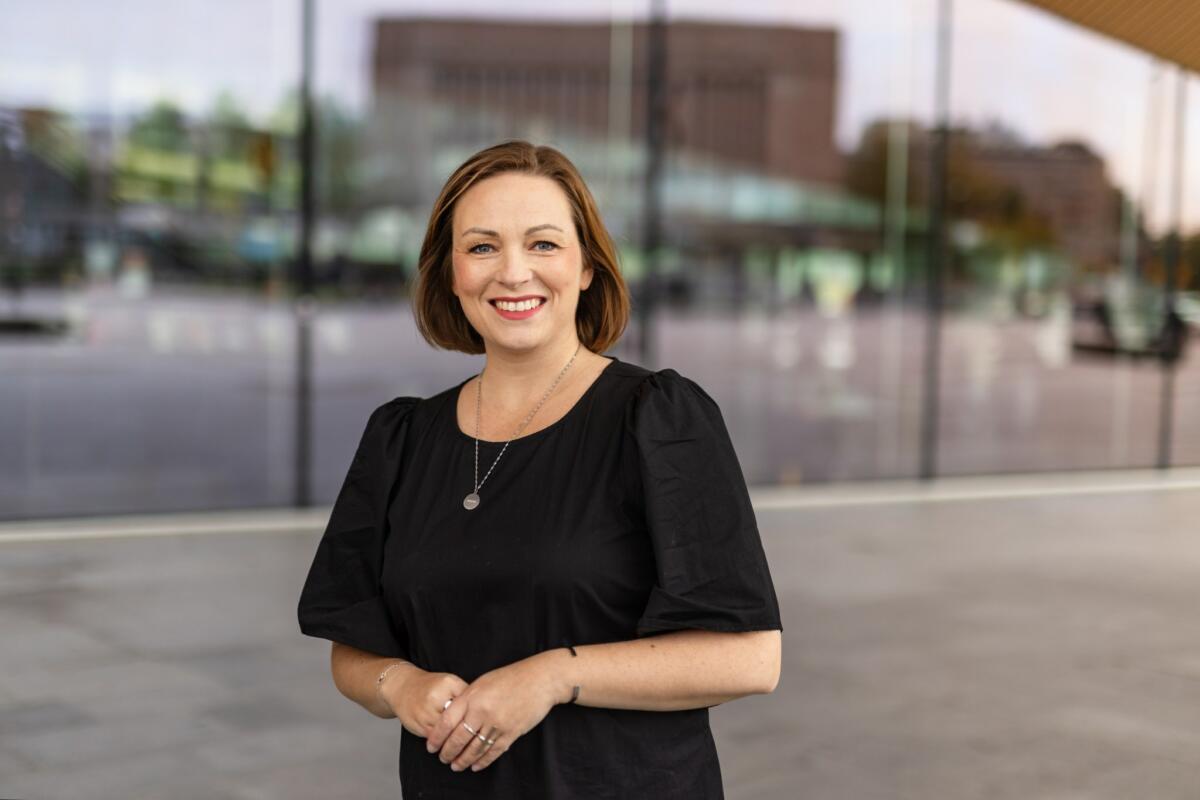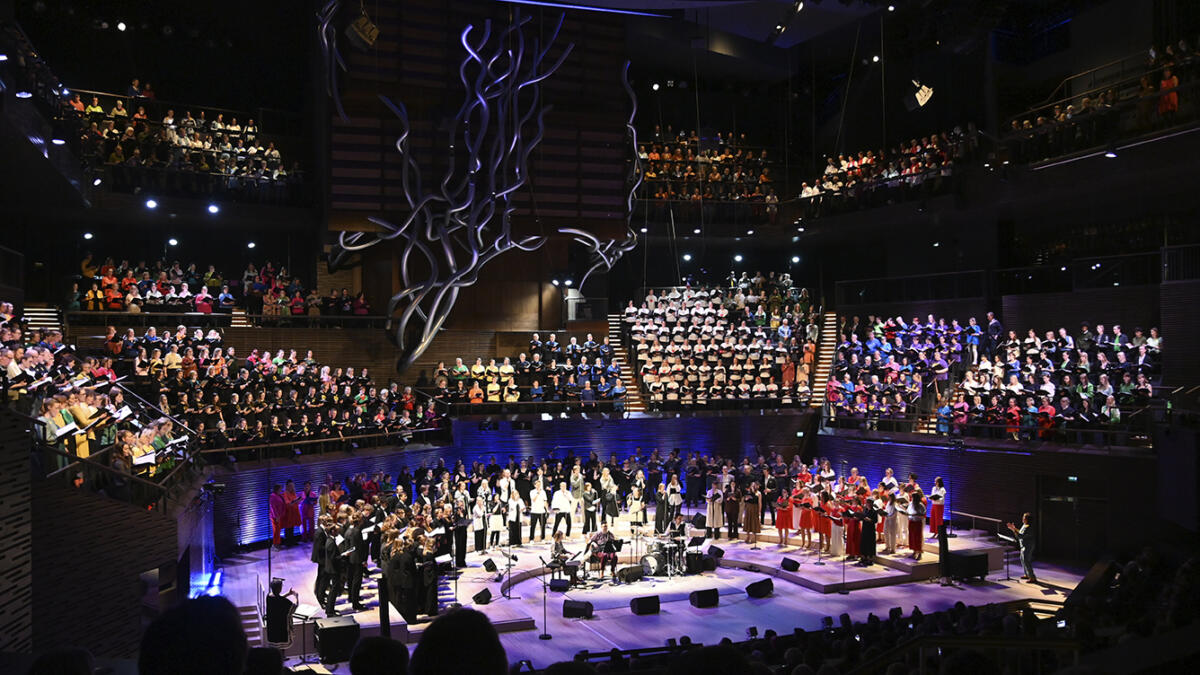Choirs unite to avert ecocide – “Music affects our bodies and feelings and allows us to deal with difficult topics through tangible experiences”
The role of art in making an impact in society is more significant than ever. For Tuulikki Laes and Merzi Rajala, music is a tool towards a more sustainable future.

When a thousand singers took the Helsinki Music Centre stage and sang to push for the need for a law criminalising the destruction of nature at the end of April, Merzi Rajala felt immense joy and happiness. The large-scale concert made it tangible for her the kind of power that music, at its best, can have as an influencing method in society.
The Choirs for Ecocide Law choir project came into being after Rajala heard about a campaign advocating for the introduction of a law on ecocide – environmental destruction – from Swedish musician Peder Karlsson. The campaign was launched back in 2017 by environmental activist and environmental law expert Jojo Mehta.
Rajala was shocked after realising that international legislation does not convict environmental criminals and decided to play her own part in supporting the cause. Together with Karlsson and her colleague Kirsi Kaunismäki-Suhonen, Rajala created an artistic whole, centred around fifteen popular music songs composed specifically for the project. Any singer or choir anywhere in the world can make use of them free of charge to campaign for the law.
(The article continues below the photo)

The goal of the project is clear: to introduce an international criminal law and to hold perpetrators of large-scale, serious and systematic environmental destruction accountable for their actions under the International Criminal Court in The Hague.
“We already have all the research-based knowledge needed for saving the planet, but information alone is not enough to bring about a change. Music has an effect on an emotional and physical level, and it offers tangible experiences to juxtapose with difficult topics. I believe that the holistic experience that music offers makes us feel the information on a personal level, which leads to actions that can lead to change,” says Lecturer Rajala from the Global Music Department of Uniarts Helsinki’s Sibelius Academy.
The change is inevitable
The choir project led by Rajala is an example of the possibilities that music offers for cooperation between the arts and research. Generally, however, there is a divide in society in the sense that art is categorised as either socially engaged art or art for art’s sake,” says Academy Research Fellow Tuulikki Laes.
Classical music, especially, has traditionally been viewed as something that operates detached from society – even though its performance practices, venues and repertoires are always associated with choices that are socially and politically charged, Laes points out.
(The article continues below the photo)

“Art is always political, but it’s not about party politics at all but about being generally aware of the matter. Even when a person says that a certain performance isn’t political, it still is. The statement shows that there’s something that people want to shut out and throw labels on.”
Starting from last autumn, Laes, who works at Uniarts Helsinki, has been leading a four-year research project called Performing the Political: Public Pedagogy in Higher Music Education, which also involves Rajala. The project is funded by the Research Council of Finland. The aim of the research is to gather information on the kinds of changes that should be made in the field of higher education in music in the Nordic countries and how these changes will be implemented. According to Laes, the change is inevitable.
“The circumstances that art and culture are in are getting tougher and tougher in terms of resources and political appreciation, and education in the arts is in a vulnerable position. Instead of demanding more resources for things we’ve always done, we need to be able to critically reflect on which practices or themes can seem problematic and what we could do differently,” she says.
Laes and Rajala have worked together already previously on a project named ArsADAPT – Artists for a Sustainable Future. The project involved a study unit at Uniarts Helsinki, exploring the human experience when dealing with the transition to sustainability by combining research and music. The project also highlighted the risk of instrumentalising art.
“When we start refining the institutional systems in music and make them relevant to society, it doesn’t mean that everything that’s music-related gets instrumentalised. The intrinsic value of art remains even when we reflect on its relevance,” Laes says.
Rethinking musicianship
According to Laes, not only institutions, but students, too, have the right to get to explore themes related to music and musicianship. Higher education should enable the building of a professional identity in a way that resonates with the current societal needs as well as with social and ecological issues. It does not mean, however, that each and every musician should become an activist, as Laes points out.
What Laes finds challenging is the lack of appreciation for professional musicians who work in schools, reception centres or contexts that involve vulnerable groups of people.
“People think that a musician can be taken seriously only when they make music for concert stages and knowledgeable audiences. This kind of black-and-white thinking should be challenged by reflecting on the wide spectrum of what musicianship can entail. It can be professionally really rewarding and valuable to work broadly in different contexts.”
Despite various challenges, Laes sees an abundance of new opportunities waiting for music in the future. Changes require not only cooperation but also patience so that they can stand on sustainable ground.
“The change must happen slowly and be based on dialogue. After the Covid and the political changeover of governments, Finland has gone through fairly miserable years in the arts and cultural sector. The way I see it, now is a good time to launch a new season of prime,” she says.
Rajala, too, looks towards the future in hopeful spirits. In three years, the Choirs for Ecocide Law choir project has gained more and more endorsement from prominent politicians, researchers and opinion leaders. The project engages in cooperation with the international Stop Ecocide International movement and the European Choral Association. According to the calculations of the last-mentioned association, there are about 37 million choir singers in Europe, which means that there is a genuine possibility to make a difference on a wide scale.
“It would be wonderful if we could get even just one per cent of them involved so that we could increase people’s awareness of the need for the law. At the same time, we’re also empowering ourselves and the people who advance the law in political sectors and in decision-making. They get an affirming experience of being seen by art,” Rajala says.

Read more about the projects mentioned in the article
Choirs for Ecocide Law concert package on the website of the Stop Ecocide International project
Performing the Political: Public Pedagogy in Higher Music Education research project
Text: Laura Iisalo
Photos: Sanna Nuutinen, Eeva Anundi, Jorma Airola